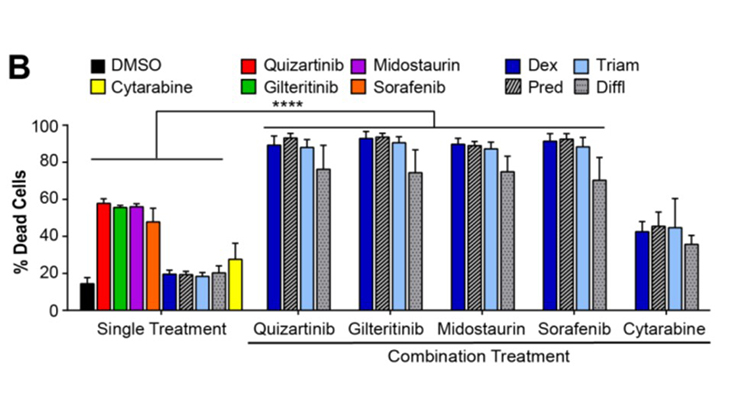Novel Combinatorial Therapy to Overcome Therapy Resistance in AML
ID# 2019-4982
Technology Summary
Despite current treatments, acute myeloid leukemia (AML) remains a fatal disease with a 5-year survival rate of less than 30%. Multi-kinase inhibitor midostaurin and dual FLT3/AXL inhibitor gilteritinib were approved by the FDA for the treatment of AML with FLT3 mutation. However, duration of response to FLT3 inhibitors is almost always short-lived before patients relapse and become resistant.
The inventors discovered that treatment with FLT3 inhibitors, including quizartinib, up-regulates inflammatory genes in drug-tolerant persister cells and thereby confers susceptibility to anti-inflammatory glucocorticoids. The inventors determined that unique combinatorial therapy of FLT3 inhibitors and glucocorticoids induces synergistic cell death of FLT3 mutant but not wild-type cells. The synergy between quizartinib and glucocorticoids, including dexamethasone, have been validated.
Application & Market Utility
Single-agent therapies most often lack durability in AML due to drug-induced activation of survival pathways. Novel drug combinations may be required to overcome drug resistance and survival of Drug Tolerant Persister cells. Penn State researchers have demonstrated a novel combinatorial therapy that may improve disease prognosis by minimizing drug resistance and thereby preventing relapse in AML patients.
Next Steps
Seek a commercial partner for continued development.

